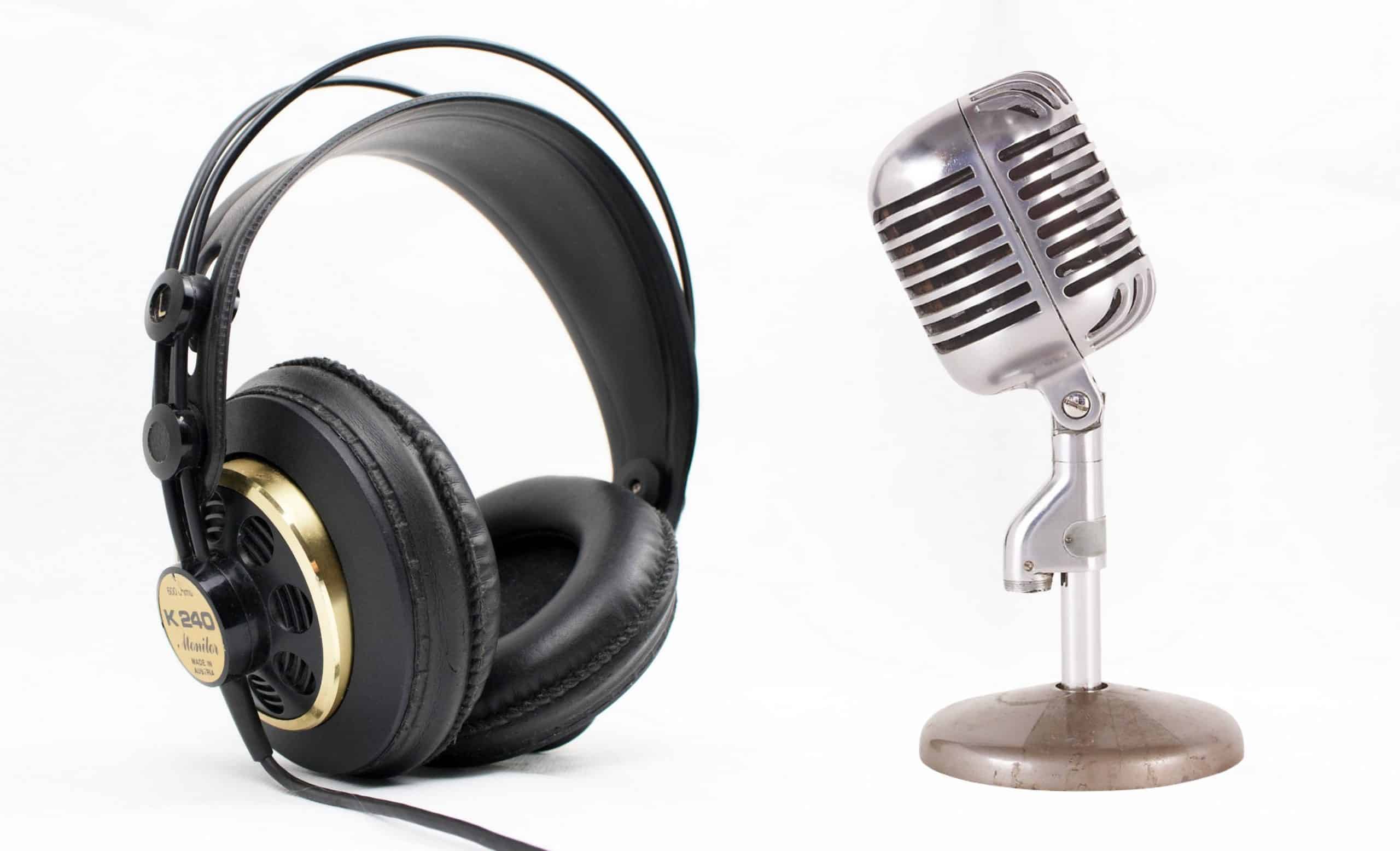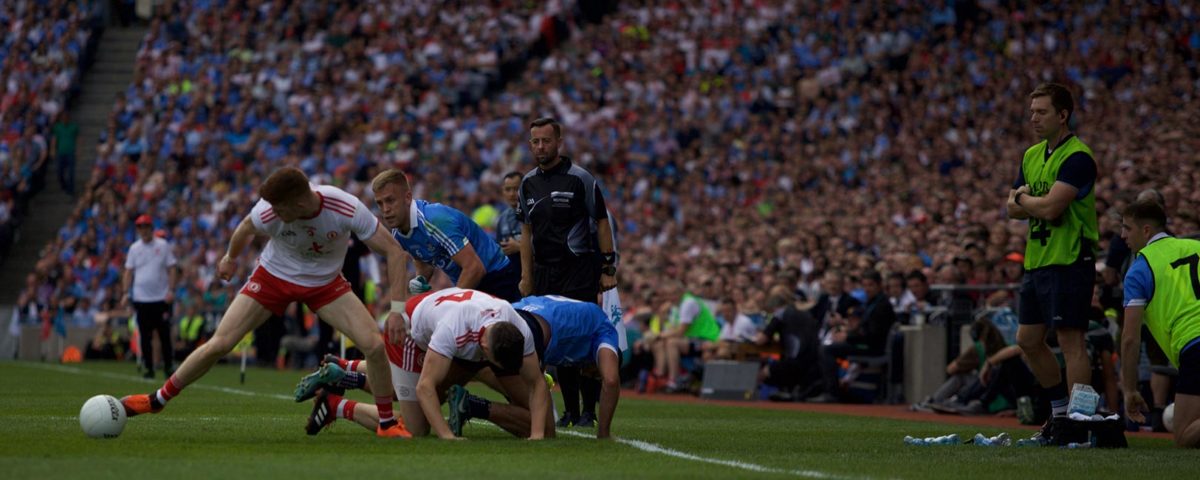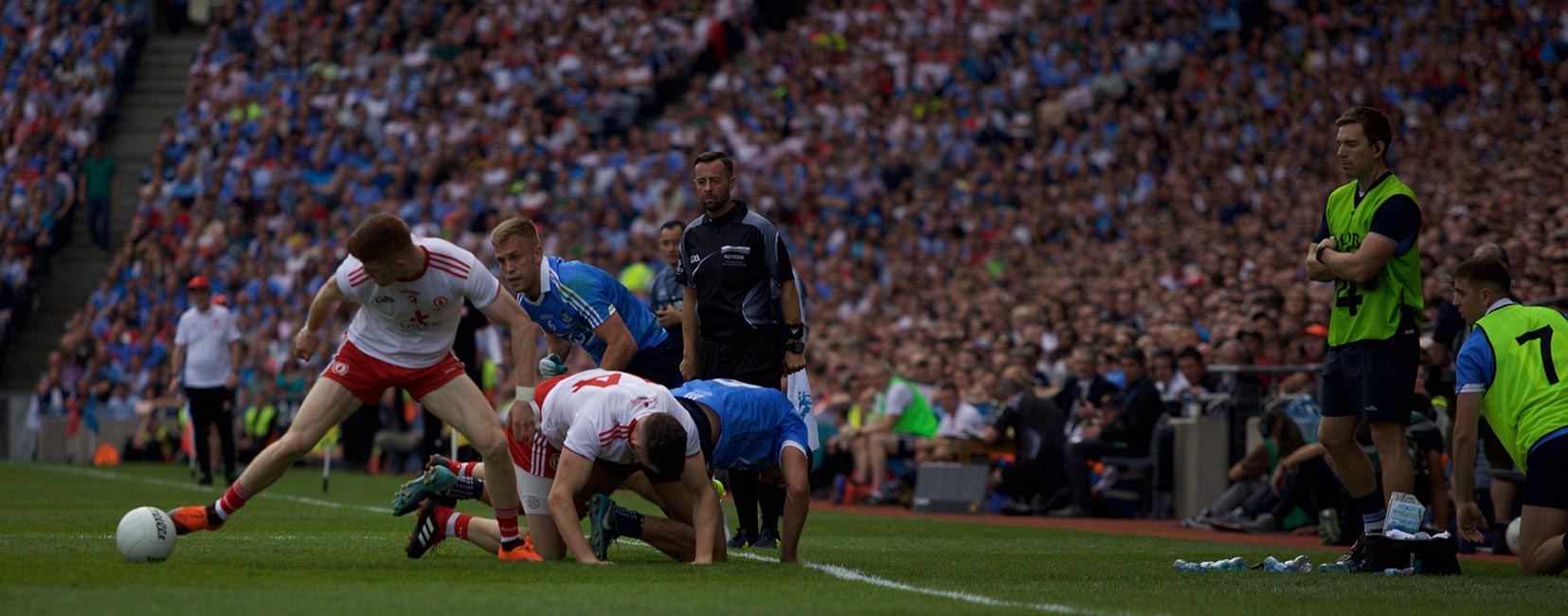The key nutrition considerations for recovery from injury
Summary recommendations for injured athletes
- It is vital to meet energy demands to support the healing process
- Adequate protein intake is an essential part of the recovery of new tissue and maintenance of muscle mass
- Food intake must be altered during each stage of recovery from injury
- Herbs and phytochemicals can be used for the 2-4 weeks after the injury to manage inflammation
- Appropriate supplements can support recovery and help control inflammation

Nutrition should not be overlooked for injured athletes and there are a number of key changes an athlete must make to their diet when aiming to maximise the rate of recovery. Firstly, it is imperative that the athlete does not restrict calories during the various stages of recovery. The body must have sufficient energy and nutrients to facilitate repair and regeneration of new tissue while also minimising the loss of muscle mass which can occur from under-nutrition, immobilisation reduced levels of training.
Mind-set
Coming to terms with being injured is not easy for any athlete but having an appropriate nutrition plan and set routine will help to provide structure to each day and help to combat the frustration associated with the injury. It is also critical to set goals and targets that are both interesting and motivational. For example, aim to improve aspects of your lifestyle, like sleep, cooking skills, mindfulness and nutrition knowledge that will improve skills and make you a better off-field athlete.

Changes to eating behaviour
All athletes, whether recreational or elite, can benefit hugely from good nutrition planning and meeting their specific needs for energy and nutrients. Athletes should limit processed foods and refined sugars such as confectionary to avoid large changes in body fat. While adequate energy and nutrient intake are important to facilitate recovery, avoiding over-eating and poor food choices is also relevant to many athletes. Athletes may feel a loss of motivation to maintain good eating habits due to occurrence of the injury and may underestimate the influence of appropriate nutrition can have on the rate of recovery. Being injured is really not a good time to try to make yourself feel better with ice-cream, although the odd treat certainly won’t hurt either!

When planning meals, there should be a modification in carbohydrate foods and a greater focus on quality protein sources and healthy fats. This is because the athlete is not as active which in turn reduces the requirement for carbohydrate as a fuel. In contrast, a slightly higher protein intake (2.0-2.4g of protein per kg body mass) can help to retain muscle mass that otherwise would be lost with inactivity.
Antioxidant rich foods
The question about antioxidant supplements for recovery from injury is a common one asked by athletes keen to speed up the healing process. When an injury occurs an inflammatory response is induced. It is really important for athletes to understand that this inflammatory response initiates activation of many processes that are crucial for optimal healing and a significant reduction in inflammation may not be optimum for recovery. Antioxidants have the potential to impede the inflammatory process and for this reason, large doses of antioxidants are not encouraged.

There are specific foods that may speed-up the recovery process. For example, essential fatty acids, in particular, omega-3 EPA and DHA, reduce levels of inflammation, whereas turmeric, ginger, garlic, pineapple, pomegranate, green tea and other fresh vegetables herbs and spices will also be vital in reducing inflammation and supporting the healing process.
There are many important nutrition considerations when trying to maximise the rate of recovery from injury. Minimizing the impact of the injury, managing inflammation and supplying the necessary nutrients and building blocks for new tissue development are crucial for athletes to return to play as soon as possible.
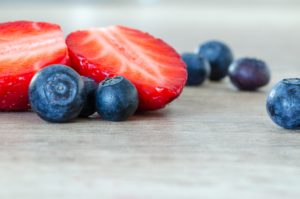
Below are a list of the main points for a fast rate of recovery.
Hydration
A number of litres of fluid can be lost if the injury is significant, hence hydration is highly important. Regularly consume water during the recovery period to help remove waste products from the injured tissue and maintain fluid balance.
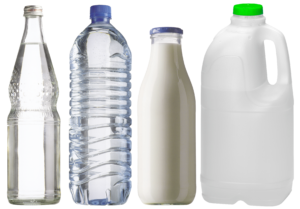
Energy balance and energy requirements
Basal Metabolic Rate (BMR) – Increased due to stress and increase in metabolic processes. It is essential that the athlete remains in energy balance during the injured phase, sufficient energy is needed for repair of the injured site, however, if energy intake is too high large fat deposition can occur. Energy demands are higher than when sedentary but still not as high as when training. It is worth noting that if rapid healing is the priority an increase of 10 to 15% of the estimated energy requirement (EER), from 200 to 500 Kcal maximum could be beneficial in the recovery process of muscle injury. Athletes can sometimes think that during injury is a good opportunity to reduce body fat but this may impact the healing process hence caloric restrictions are not advised.
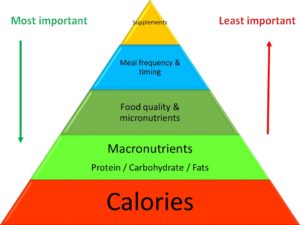
A typical 5’10 male athlete requires an average of 2200 when sedentary, > 3000 calories daily during training and roughly 2700 during the early stages of injury. This may be further increased if an athlete is using crutches for mobility for extended periods.
Meal timing: A steady supply of energy and nutrients is hugely important for injured athletes. The aim should be to eat every 2-4 hours and each meal should contain a protein source. Fasting or skipping meals is not recommended during injury.

Carbohydrate requirement
Carbohydrate (CHO) intake is essential during periods of heavy training and competition, however, there is a lower requirement for CHO during injury. Avoiding refined and starchy CHOs is the easiest way to reduce energy intake and will help to manage body composition. Carbohydrate sources should be from unprocessed sources like fruits and high fibre vegetables, there is reduced requirement for cereals, bread, pasta, potatoes, and very limited space for junk food, sweet drinks, chocolate or refined carbohydrates. These foods are simply not going to support your recovery.

Protein
Protein is critical for optimum healing from injury and the requirement for protein is increased during injury. 1 g of protein is required per pound of body weight (kg) for optimum recovery. Good protein sources: Lean red meats, fish, eggs, nuts & seeds, pea protein, whey protein and natural yoghurt.

Supplements
- Whey protein – 1-2 scoops daily may be used to help an injured athlete achieve their daily protein needs.
- Omega 3 oils may help to manage inflammation. 1-2 g of omega 3 oils can be supplemented daily.
- Probiotics – probiotics may offer benefits to an injured athlete by supporting optimum gut health and immune function.
- HMB (short for β-Hydroxy β-Methylbutyrate) – 3 g daily, may help to limit muscle wasting.
- Collagen – 15g daily, can support tendon and ligament healing
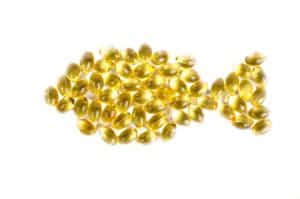
References
Braakhuis, A.J. and Hopkins, W.G., 2015. Impact of dietary antioxidants on sport performance: a review. Sports Medicine, 45(7), pp.939-955.
Kerksick, C.M., Arent, S., Schoenfeld, B.J., Stout, J.R., Campbell, B., Wilborn, C.D., Taylor, L., Kalman, D., Smith-Ryan, A.E., Kreider, R.B. and Willoughby, D., 2017. International society of sports nutrition position stand: nutrient timing. Journal of the International Society of Sports Nutrition, 14(1), pp.1-21.
Tipton, K.D., 2015. Nutritional support for exercise-induced injuries. Sports Medicine, 45(1), pp.93-104.
Shaw, G., Lee-Barthel, A., Ross, M.L., Wang, B. and Baar, K., 2017. Vitamin C–enriched gelatin supplementation before intermittent activity augments collagen synthesis. The American journal of clinical nutrition, 105(1), pp.136-143.
Quintero, K.J., de Sá Resende, A., Leite, G.S.F. and Junior, A.H.L., 2018. An overview of nutritional strategies for recovery process in sports-related muscle injuries. Nutrire, 43(1), p.27.



